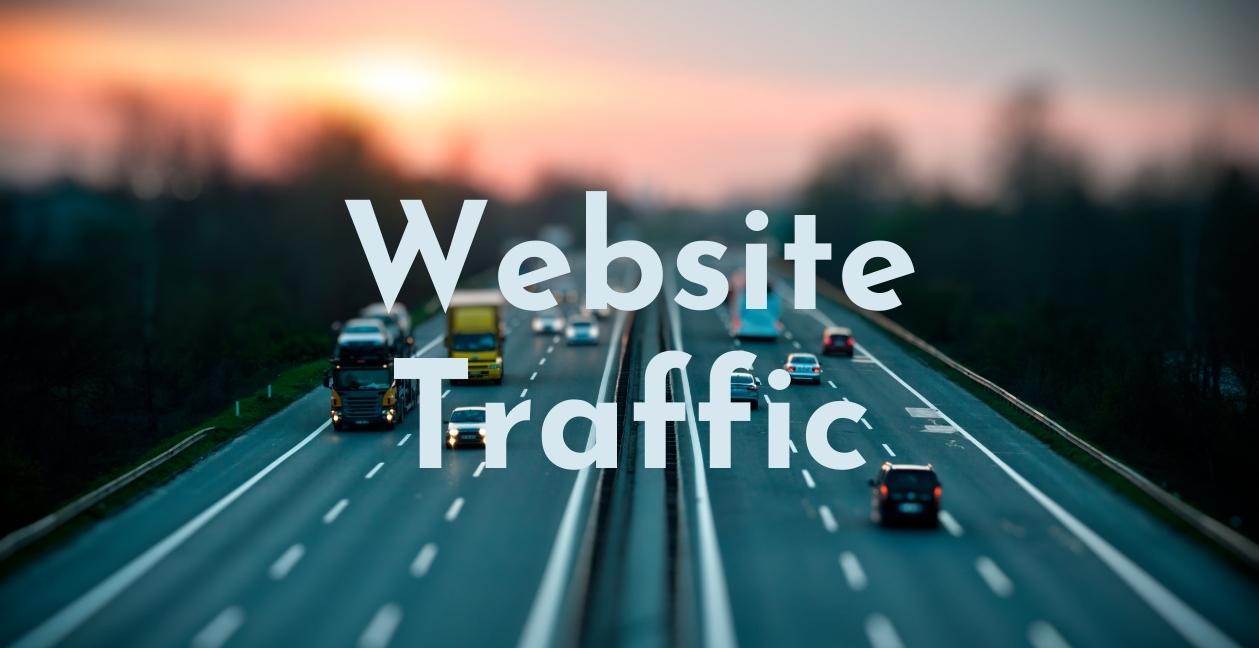When a business is struggling to get the word out about its new opening, it will not be alone. Many companies have difficulty acquiring customers during their early days.
When it comes to an online presence, it can be difficult to balance the cost, maintenance, and results of a digital marketing campaign. In most cases, businesses will have one of two options for their digital marketing efforts: search engine optimization (SEO) or pay-per-click (PPC) campaigns.
What is SEO?
SEO involves enhancing a website’s visibility to make it rank higher in search engines and gain organic traffic. There is little doubt that many people rely on search engine results to help them find new products and services.
According to IMPACT Sales & Marketing, Google currently has over 85 percent of the search engine market and has already received 943 billion searches this year. On the first page alone, the first five organic results account for 67.6 percent of all the clicks
For an example of SEO, look at how Hubspot appears at the top of a Google organic search engine results page (SERP) for the term “inbound marketing.” The order of the results on that page is not random.
Every search engine will take several ranking factors into account that influence where webpages are placed. An SEO strategy will focus on creating web pages and content that will work with the ranking factors of search engines to help websites rise within SERP rankings.
Other search engines
A majority of SEO strategies will focus on Google instead of competitors such as Bing or Yahoo! because Google commands 92.47 percent of the search engine market share. This often means there is more of an impetus for marketers to focus on Google’s 200 ranking factors, technical SEO, link building, content creation, and additional factors to appear as high as possible on SERPs.
Advantages of SEO
SEO can offer a number of immediate and long-term advantages for a company. Here are some examples.
SEO will be cheaper in the long run
It is not as though SEO does not cost anything because many SEO tools will require paying people to operate, but SEO still remains cheaper than PPC. The tremendous benefit to SEO is that by creating content that helps a website rank higher and drives more clicks, companies do not have to spend additional money to get more clicks.
Businesses can increase their clicks without having to spend any additional money. This can make organic traffic far more scalable and cost-effective.
Ability to target different funnel stages
The bottom line will be that not all website visitors are likely to be in the same stages of the sales funnel. Whereas some people are only at the introductory stage, many others are ready to commit to sales.
SEO allows companies to create different types of content that can meet each website visitor at the segment of the sales funnel that they are at. Working in the right material can help close deals and win customers.
Greater stability
After a business website begins to rank on Google, a company can begin planning based on the traffic a website can generate. The major benefit of SEO will be that there is no power-off switch to SEO.
Unlike PPC which can cease when a company can no longer pay the bill, SEO will continue well beyond a company’s original efforts. The best comparison in these cases may be to real estate, as SEO is like owning website traffic while PPC is like renting it.
Organic listings build brand authority
When a company can appear consistently in search results for relevant keywords related to its product or service, it will help the business develop trust and brand authority with its target audience. Appearing with consistency will also increase credibility and trust which leads to more people being willing to supply beneficial backlinks to your website.
Downsides to SEO
Just as SEO has its many advantages, it also has some drawbacks. They include the following:
1. Algorithms change.
Many search engines are constantly modifying their algorithms to help keep their results fresh. Changes to algorithms can also negatively impact the standing of some websites in SERPs.
2. Regular optimization
Optimization work does not end when a website begins to rank because content always needs to be further optimized so a website can continue to rank. Companies may have to refresh their older articles and remove old or expired links to improve their statuses.
3. SEO takes time
When a website or domain is new, it is not as likely to see immediate results from SEO. Google often forces new websites to wait several weeks or months before they begin seeing results.
4. SEO requires high-level skills and expertise.
When a company is not hiring a professional, it will need to understand its audience’s goals and meet them with quality content to best optimize a website for search engines. Technical SEO is a skill that many people struggle to master.
What is PPC?
PPC is a kind of search engine marketing (SEM) in which an advertiser pays a publisher for each click a person performs on an ad. The model allows businesses to pay only when consumers interact with their ads, meaning that businesses will only attract the people who are already interested in an offer and ready to convert.
Perhaps you have already noticed that when you perform most any search, the top search results are often labeled with “Ad.” PPC ads get prime placement, even over top organic pages.
Some companies run PPC ads for specific marketing campaigns that have definite beginning and end dates. Other businesses may bid on their own brand name as part of an overall marketing strategy.
The cost of a PPC ad campaign will usually depend on an industry and the search volume of a keyword being targeted. PPC advertising helps many companies stay competitive in crowded markets and quickly get in front of target consumers when they do not have the domain authority to get their websites ranking organically on search engines.
Advantages of PPC
Quick results
It can take several months for a company to begin seeing results from an SEO campaign. With PPC, the results are instant.
PPC ads appear over organic rankings
The major advantage of a PPC ad is that you are at the top of a SERP. This means that your ad will appear before any organic listings.
Target your audience
PPC can allow a company to focus its ads on specific demographics. This can mean that your ads can pinpoint people in certain geographic areas, people of certain ages, or people of certain marital statuses.
Quickly run A/B tests on a PPC ad
PPC campaigns allow companies to run two different ads simultaneously to measure which one converts better. A business only needs to change certain ad elements and allow them to run for a period to decide whether to kill the ads or continue optimization and improve the results.
Downsides to PPC
Cost
There is no getting around the fact that PPC ads cost money, and companies will have to stomach paying some substantial costs in most cases. Worse yet, a more popular ad is even more costly since it will result in more clicks.
According to Valve+Meter, every $1 spent on GoogleAdwords results in $2 revenue with the average cost-per-click (CPC) for Google Ads ranging from $1 to $2 for search ads and from $0.10 to $0.50 for display ads. WebFX reported that companies were expected to spend $144.8 billion on search advertising last year.
Lower profit margins
Even though a PPC campaign can deliver many short-term wins, it still involves lower profit margins because it is a “pay to play” system. This usually means that your customer acquisition costs only continue to get higher even when there is no increase in the prices of your products or services.
PPC ads become stale after a while.
PPC ads are subject to certain limitations that mean they might not be very catchy. If a company’s PPC ad is too similar to a competitors, then the ads become tiresome for viewers and less likely to result in clicks.
SEO vs. PPC
SEO will be the best bet for any company that wants its website content to rank highly on search engines. PPC is usually the method for businesses seeking immediate results because the strategy will be focusing on delivering results relating to certain keywords.
It is challenging to compare SEO to PPC because their application often depends on the situation. While some companies are better off focusing on SEO, many others stand to benefit from PPC.
Companies should consider using SEO if they:
- have a low marketing budget
- want to build brand authority
- want to maximize their long-term return-on-investment (roi)
- want to create content that reaches their audience at different stages of the sales funnel
On the other hand, PPC could be more beneficial for companies that:
- want quick results.
- have novel or first-of-its-kind products
- are promoting a time-sensitive offer such as a holiday sale
- want to direct their audience to a sales or landing page
Making SEO and PPC Work For You
SEO and PPC does not necessarily have to be an either/or proposition. Companies can instead combine these strategies to maximize their returns.
Here is how companies can try to maximize their returns using both PPC and SEO.
Create retargeting ads.
If a person visits your website without buying, you can use a retargeting ad to prompt them, even after they have left your website, to come back and complete the purchase.
Use social media ads to promote website content
Social media promotion can give a major boost to pages that are slow to rank organically. Social media ads can help with content distribution and also acquire needed backlinks that help boost rankings.
Use ad data to improve SEO strategy
Many PPC campaigns will provide a wealth of data, ranging from keyword search volumes to keywords competitors are bidding for to highest converting calls-to-action. All of this information can be utilized to improve both SEO and PPC strategies.
SEO vs. PPC Statistics
Here are some compelling statistics about SEO and PPC.
SEO
- According to Statista, Google is responsible for over 92.47 percent of global web traffic
- Ahrefs reports 90.63 percent of online content gets zero traffic from Google, and only 0.21 percent gets more than 1,000 visits per month
- According to Sparktoro, 35.18 percent of browser-based Google searches result in an organic link click
- Ahrefs also reported that 99.2 percent of website pages have less than 100 backlinks
- According to Hubspot, Google processes over 5.6 billion searches per day (which translates to 2 trillion searches per year)
- Hubspot also reported that 64 percent of marketers actively invest in SEO.
PPC
- Google says the Google Display Network reaches 90 percent of internet users worldwide
- According to Statista, search advertising spending was $144.8 billion in 2021 and $58 billion in 2020
- Statista also reported that the highest average monthly cost-per-click (CPC) in Google Ads search advertising was in the insurance industry at $18.57 per click
- According to Statista, the cheapest CPC in Google Ads search advertising was in the electronics industry at 77 cents per click
- The Drum reported that the average Facebook Ads Click-Through Rate across all industries is 1.1 percent
Whether a company chooses to go with SEO or PPC will ultimately depend on its specific business situation. It will be important for a company to take the time to evaluate the pros and cons of SEO and PPC to see which one is the best fit for it.
Find SEO and PPC Help in Houston, TX | SERP Matrix
SERP Matrix are heavily invested in helping companies all over the Houston area and surrounding areas of Texas with search engine optimization (SEO). We also handle PPC advertising issues for our clients in communities all over the country.
SERP Matrix can assist your company with many other business concerns besides PPC and SEO. Our team also delivers landing page design and testing, mobile app development, and reputation management services.
We can be your one-stop shop for all of your digital marketing concerns. Call (713) 287-1134 or contact us online to take advantage of a free consultation.








